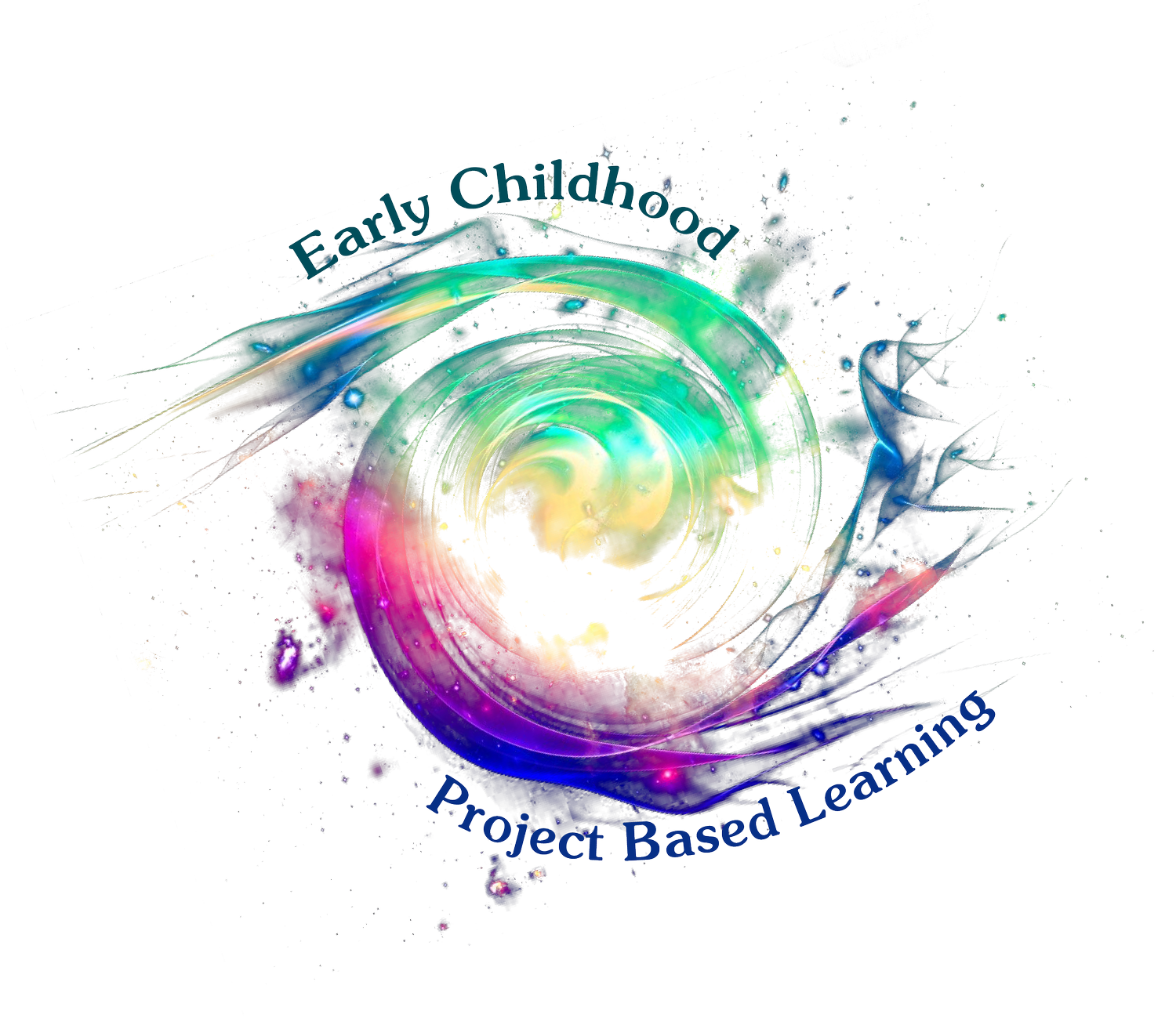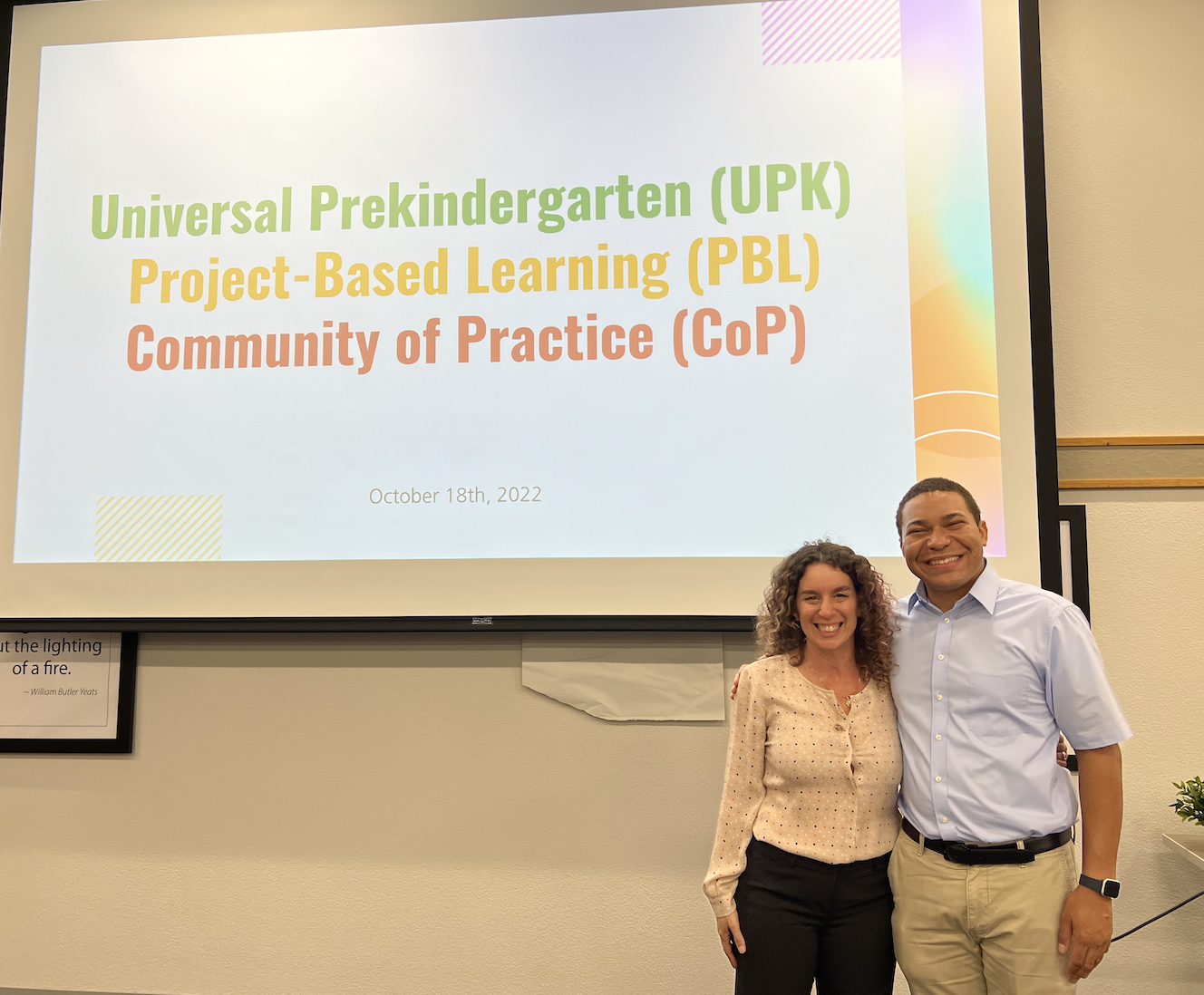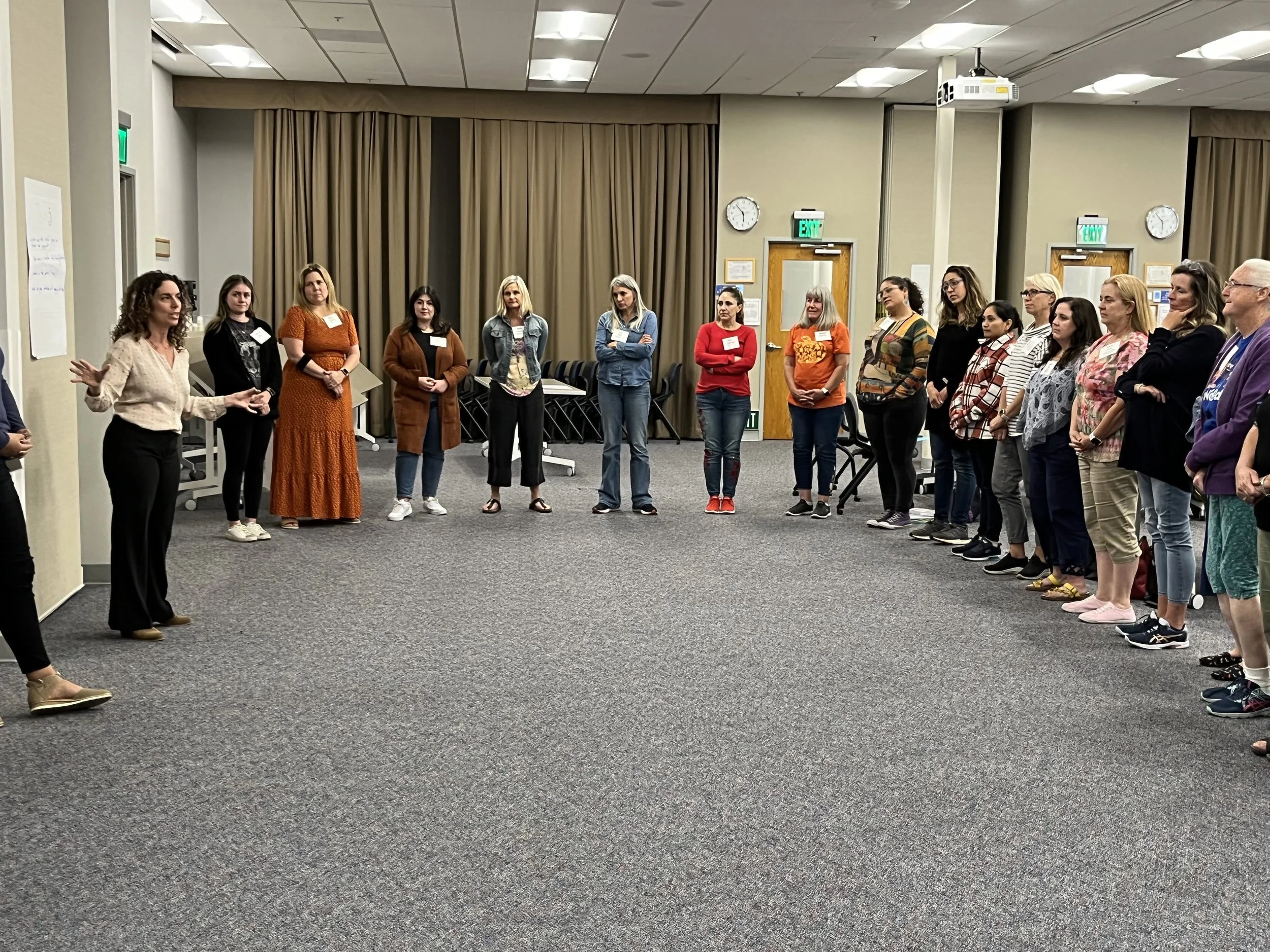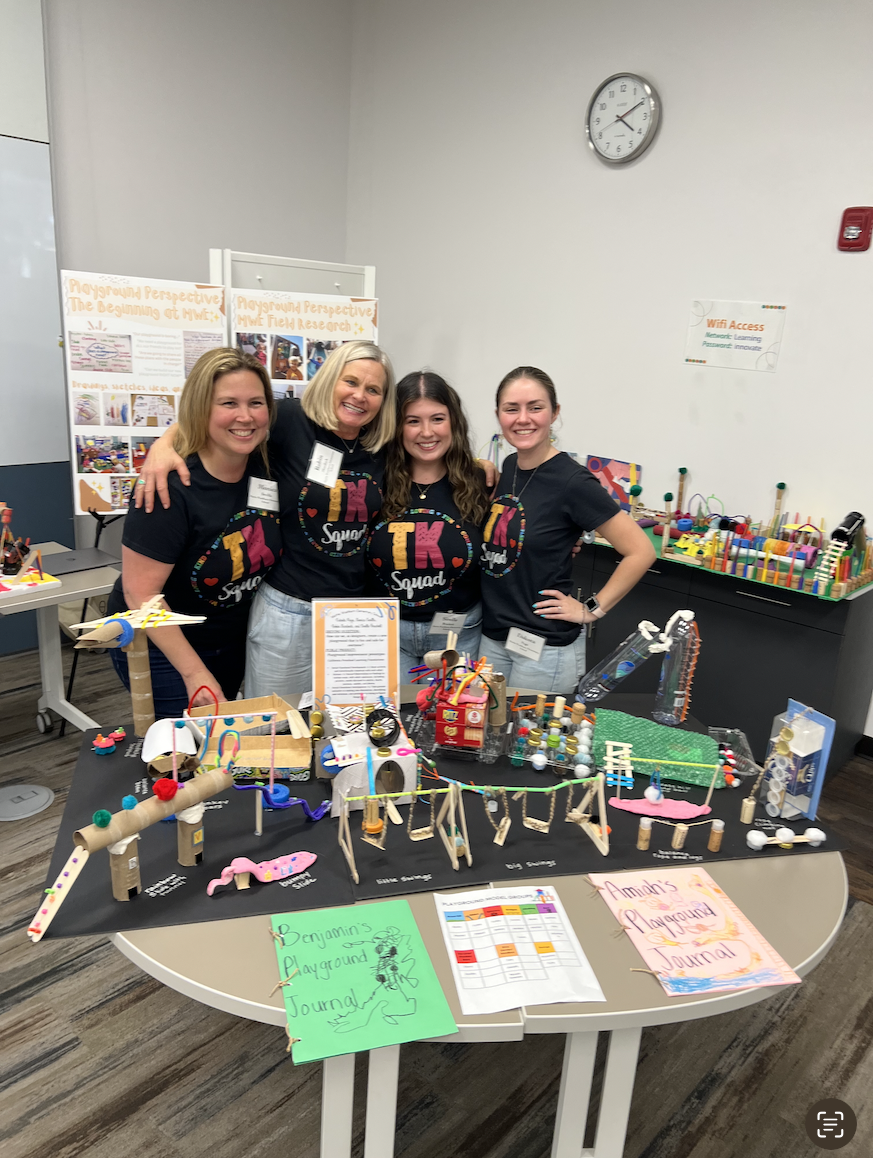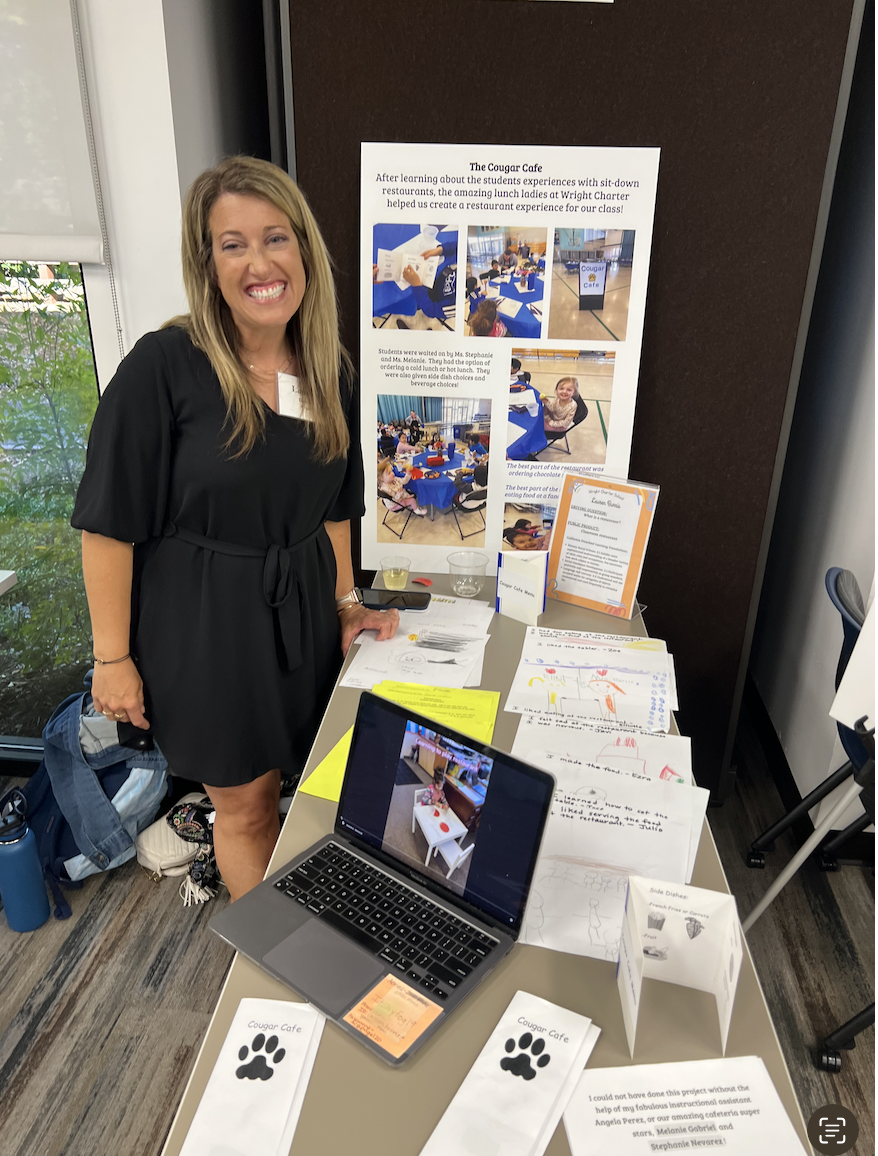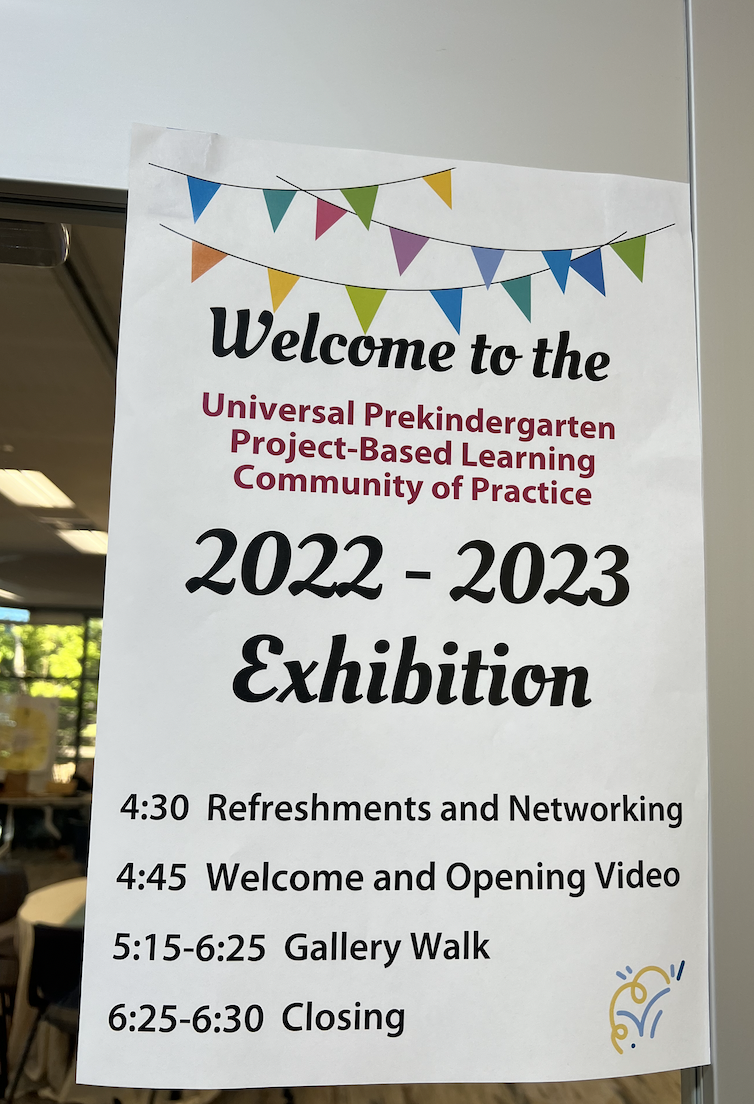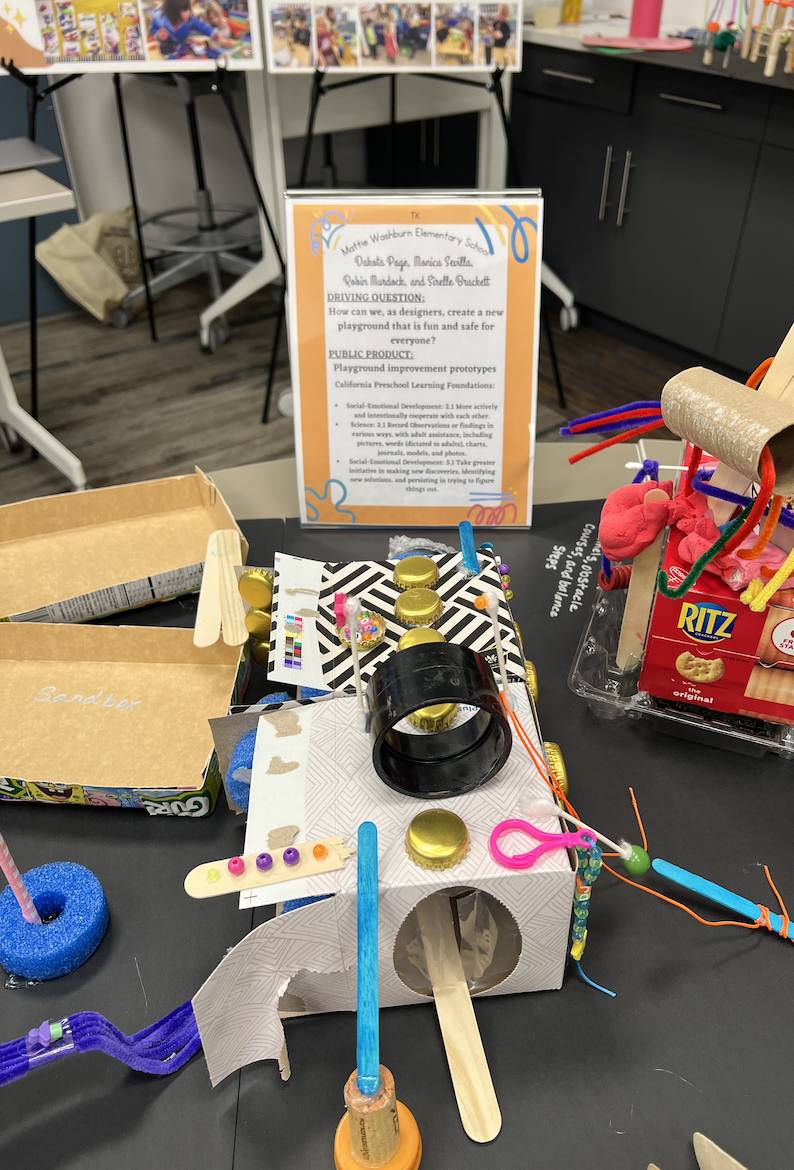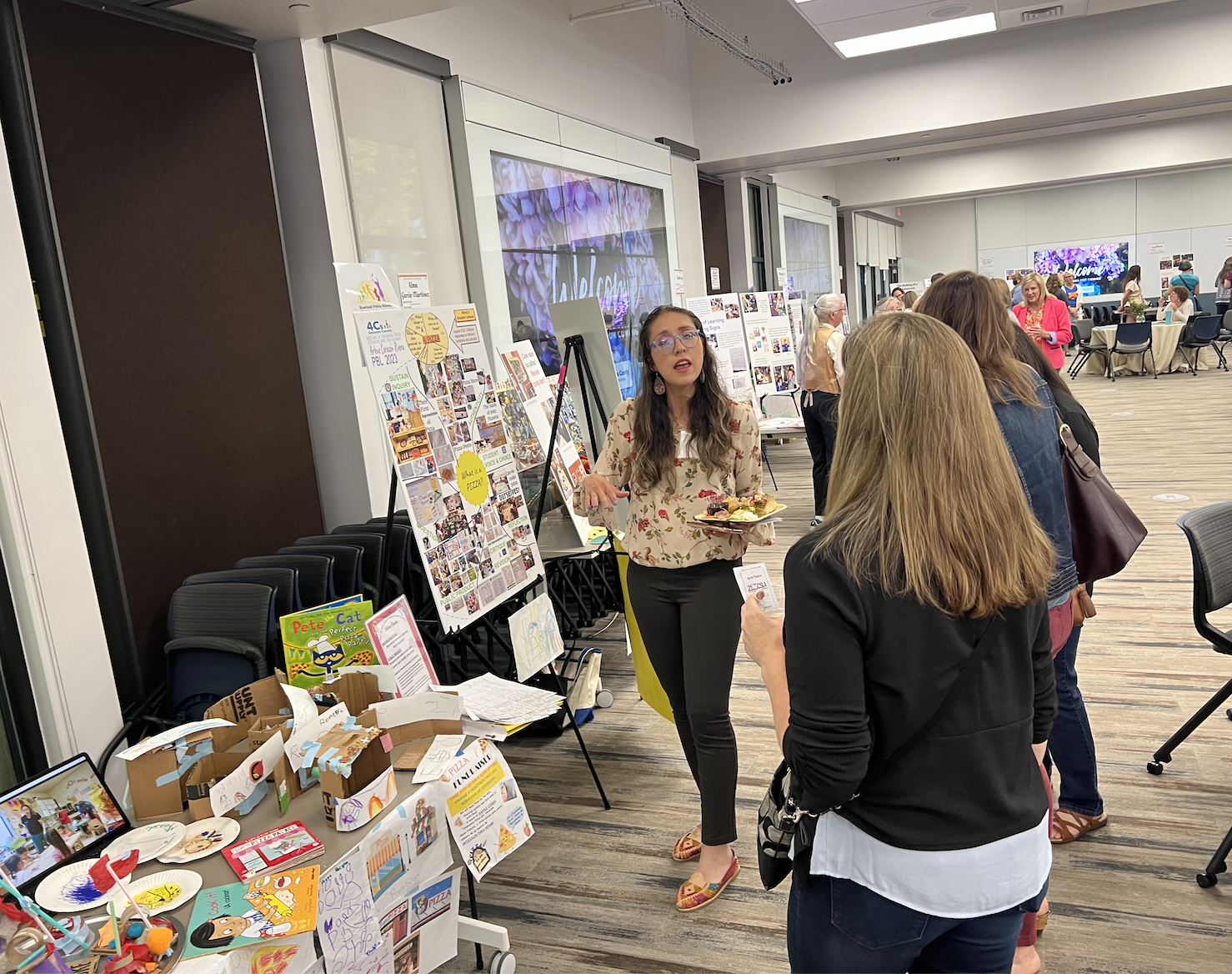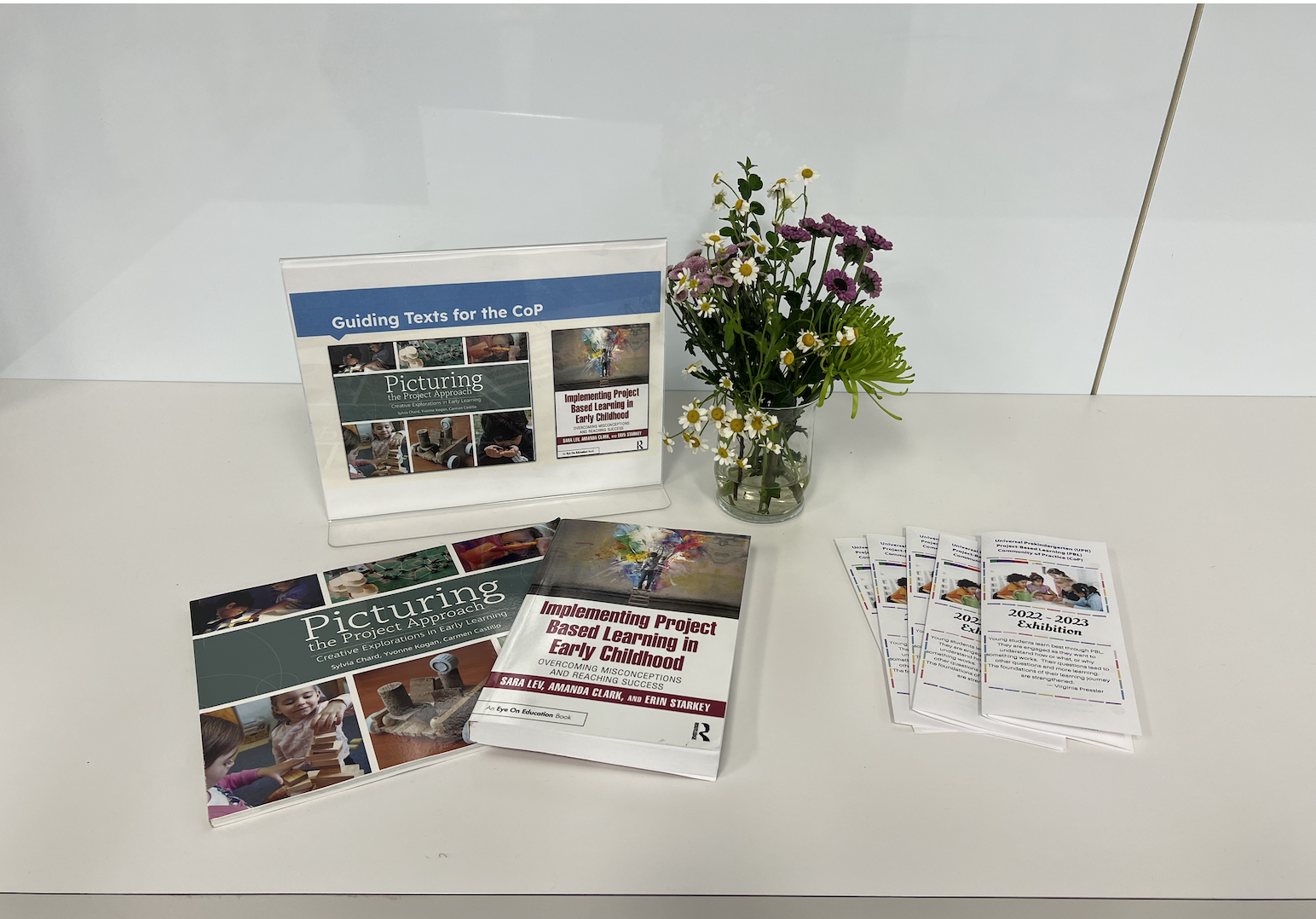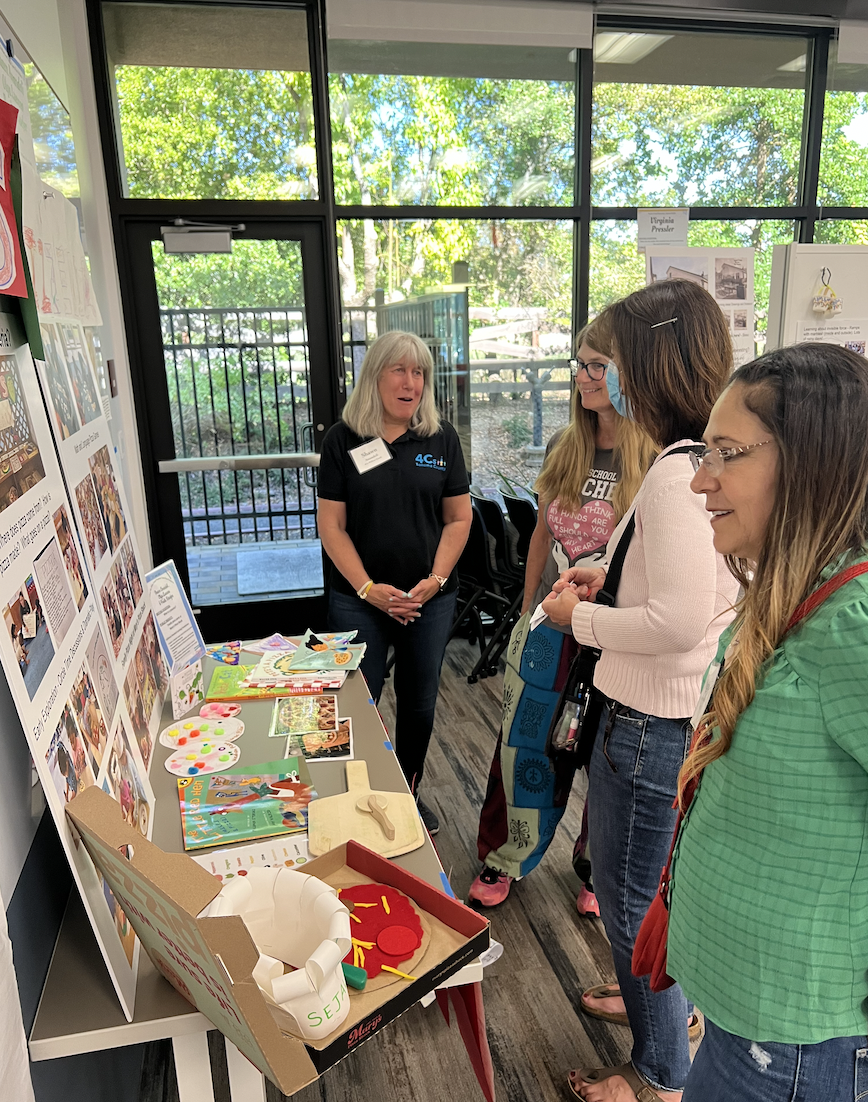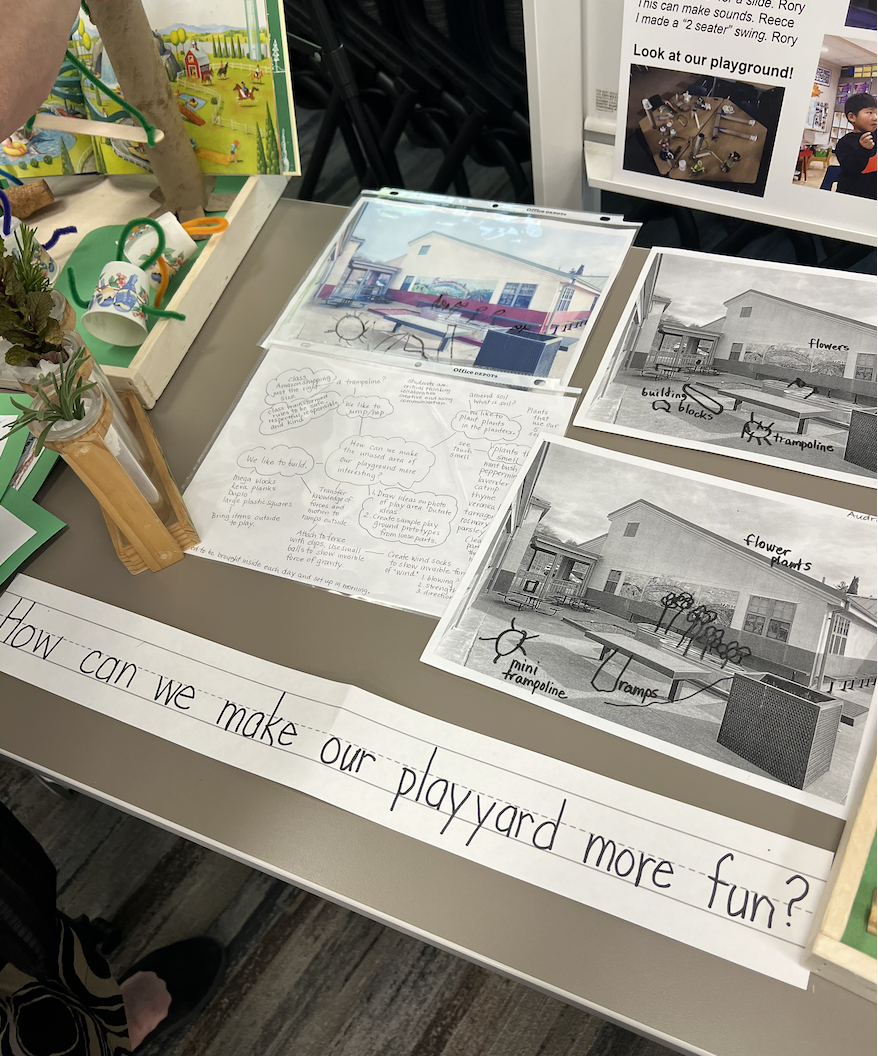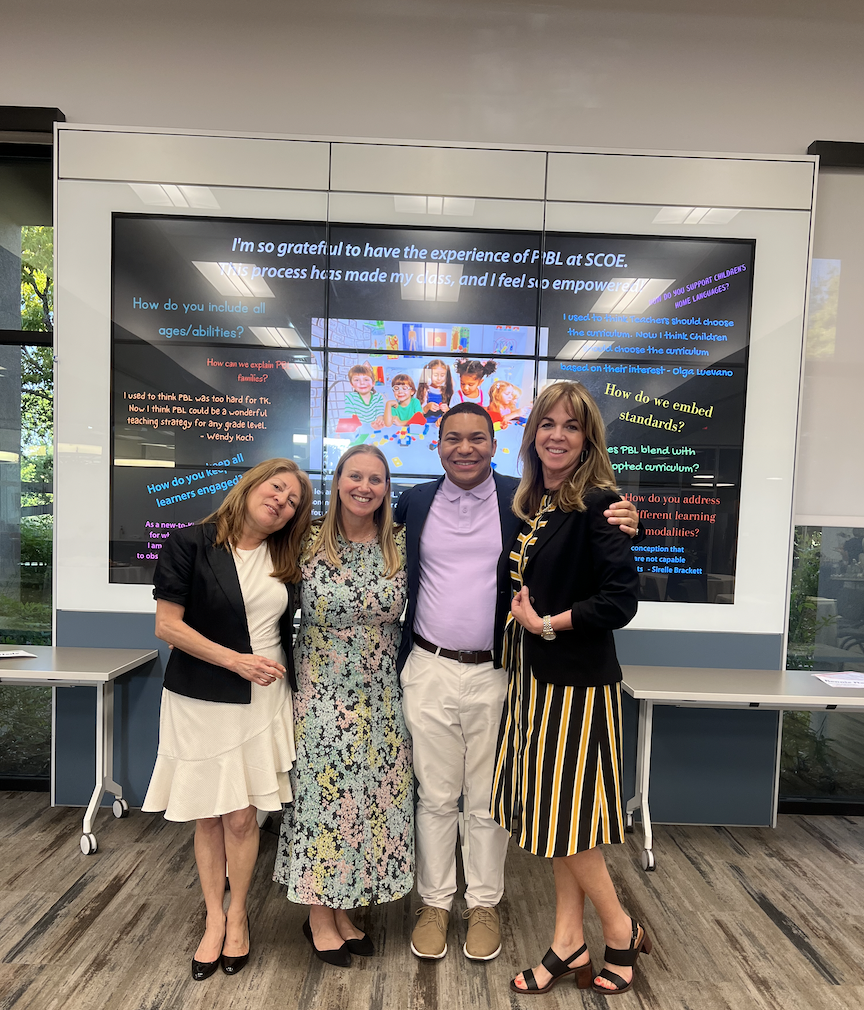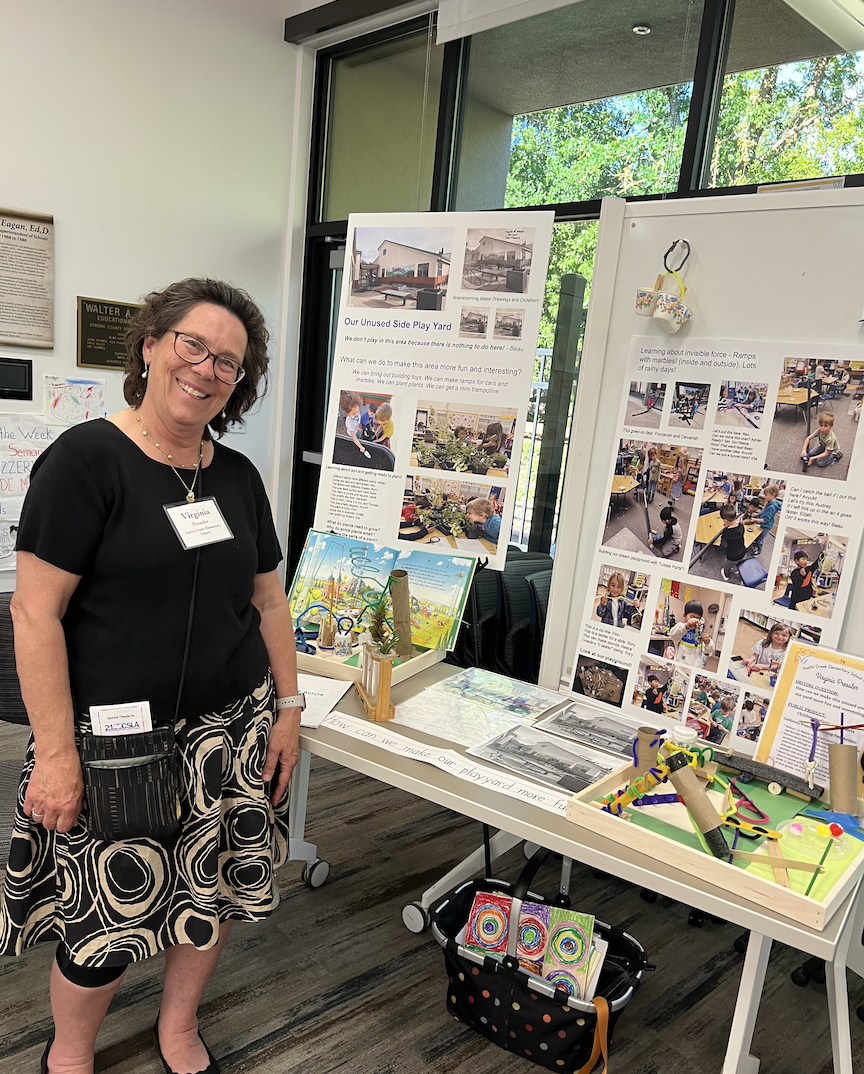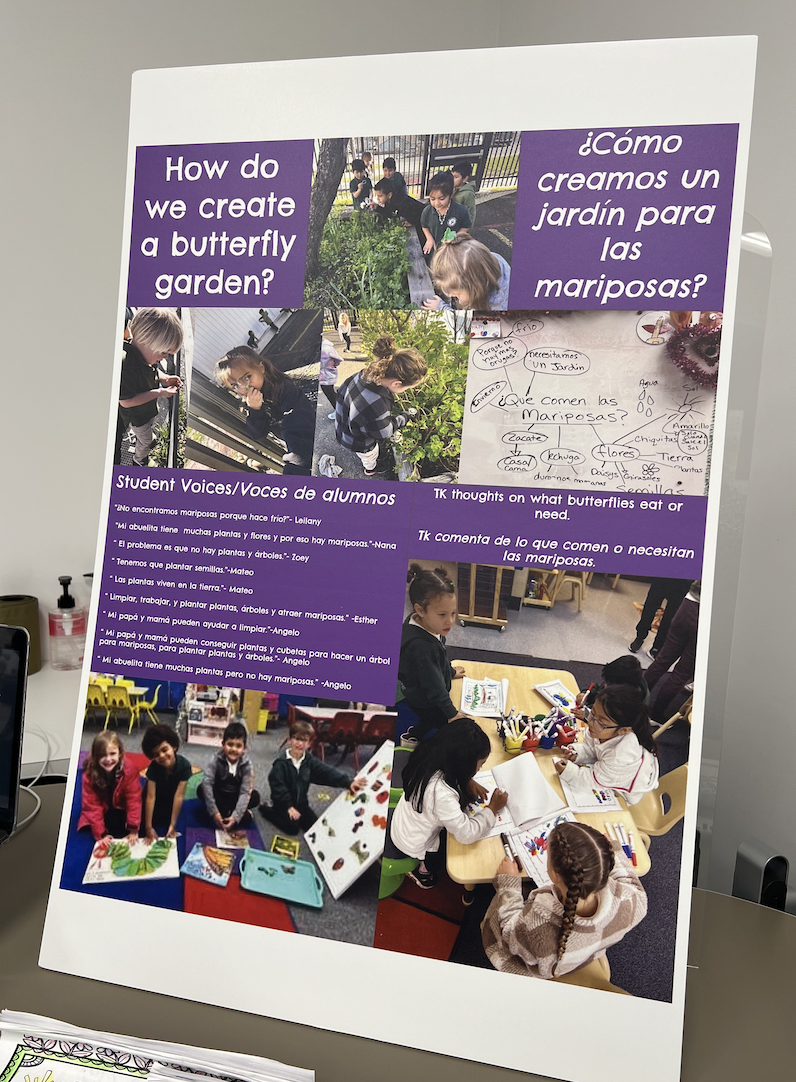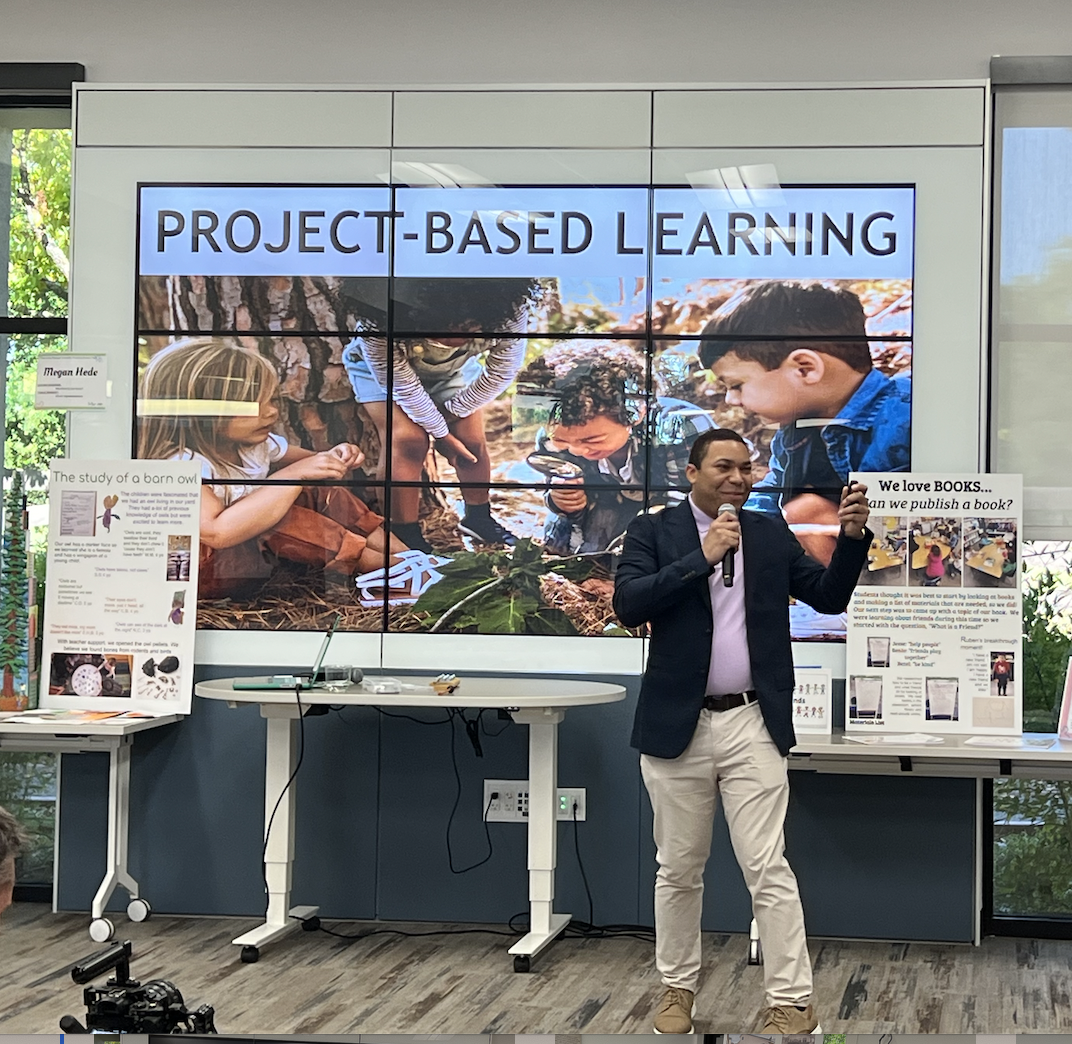Transforming Universal PreKindergarten through Project Based Learning: Reflections on a Year-Long PBL Community of Practice
In the Summer of 2022, I was approached by Ryan Kurada, Sonoma County’s Universal PreK (UPK) Curriculum Coordinator, to help contribute to an innovative professional development plan for the early childhood teachers in his county that aligned with California’s Department of Education’s vision for transforming schools - the implementation of Universal PreK across the state.
UPK includes teachers in PreK, Transitional Kindergarten and kindergarten, as well as family child care providers and administrators. As a former early childhood teacher, Ryan saw the transformational impact Project Based Learning had on his students, and he envisioned a reality where all children in Sonoma County had a quality and joyful learning experience.
Ryan was confident that timing was right to start planning quality professional development for his educators as the California legislators were instituting a plan to “bring together programs across early learning and K–12, relying heavily on transitional kindergarten and the California State Preschool Program, to ensure every four-year-old child—regardless of background, race, zip code, immigration status, or income level—has access to a quality learning experience the year before kindergarten.” Ryan’s initiative included not only the implementation of PBL, but empowering teacher-leaders in communicating to the broader community the extraordinary capabilities of young children.
Ryan went to his colleagues and supervisors and said - Here is my idea. “I want to do a county-wide, Project Based Learning, professional development, and I want it to be ongoing. Research suggests that one-time PDs don’t work, and in order to sustain practice and strategies, we need it to be ongoing…educators need the support.” Once funding was secured through the 21st Century California School Leadership Academy (CSLA), Ryan was given the green-light to create a Community of Practice (CoP).
I sat down with Ryan last spring to learn more about the Community of Practice, his reflections and key takeaways and his hopes for the future. Here are excerpts from that conversation.
Can you tell me a little bit about the structure of the CoP?
The CoP was open to all UPK educators – state run preschools, private preschools, elementary schools – in Sonoma County. We ended up with 30 participants, representing educators from a wide UPK spectrum. The varied representation was powerful because one of the visions of our UPK team here at the Sonoma County Office of Education (SCOE) is the desire to build a bridge between early childhood and the TK-12 systems, so we can help uplift all early learning environments so that all kids can thrive no matter where they are, no matter what option families choose. And what we learned is that PBL will work for all of those contexts.
In terms of the structure, I wanted educators to understand the interdisciplinary lens of PBL. I also wanted them to understand the framework of PBL. We met for eight sessions, approximately two hours a month. Our Fall sessions focused on learning about project based learning and we spent time learning how to plan a unit. In the Spring, the teachers facilitated the unit with coaching support. Each session focused on a different phase of the Project Approach and a curriculum content area. We used two books for our guiding texts: Picturing the Project Approach and Implementing Project Based Learning in Early Childhood. The teachers read the books and completed reflections throughout the CoP. The CoP culminated with an evening event where the teachers presented their work to the community in our exhibition.
What were your hopes when you launched this CoP?
My hopes were to have educators realize their role in creating engaging learning experiences through inquiry based learning for their youngest learners. Experiences that support engagement, in-depth learning, and community building. I wanted them to realize that it is possible to use project based learning in early childhood classrooms despite the belief in the mainstream educational world that PBL is meant for secondary school students. There is the assumption that only at that level do kids have the academic and social and emotional skills to do PBL - that only then are they ready for that type of learning. But NO. They are ready for it now. I wanted the teachers to see how the county’s “Portrait of a Graduate” skills can be developed as early as preschool. And that things like curiosity, showing initiative, and empathy are all possible through PBL.
What were some of the reflections from teachers?
At the conclusion of the CoP, I wanted to assess the growth and understanding of PBL with our UPK educators. I sent out a survey to record their final reflections on this year-long professional learning experience, and these were just a few of the many comments that I felt demonstrated not only the instructional impact, but also the mindset shift that PBL inspired.
”I used to think that doing project based learning projects with 4-5 year olds would be very difficult. I was worried that I was inserting too much "teacher guidance". But now I know that young students learn best through PBL. They are engaged as they want to understand how or what or why something works. Their questions lead to other questions and more learning. The foundations of their learning journey are strengthened.” Virginia P., retired TK teacher.“I thought that PBL was going to be nearly impossible to implement in my regular classroom - especially for the TK age group. But now I know that PBL can fit in with so many things throughout the year. And I love that I can tailor it to the kids' inspiration for something and build on that.” Helẽn J., TK teacher
“I used to think that kids need to be taught. Now I think that kids teach us.” Laura B., PreK teacher
Can you share a little bit about some of the projects that teachers developed?
All of them were incredible and powerful. One that sticks in my mind is a TK/kindergarten team did this project on their bike path on their TK/K playground. They realized that the current path was faded, it wasn’t really clear, kids were running into each other, kids were getting hurt, all the social and emotional problems you can imagine, and so the teachers posed that problem to the kids.
The teacher planned an entry event that allowed the kids to realize how chaotic the bike path was. So she had the kids go out and use the tricycles and go in all these different directions. She wanted them to realize the chaos, the screaming etc. and she took photos, brought back to kids and talked about it. And she launched her project with the driving question "How can we create a fun and safe experience while using trikes on our blacktop?” The learning goals included history, social science (navigating familiar locations), math (width, measurement). They made the plans, and sent it to the maintenance director. And they ended up actually drawing this out, and made a completed bike path and they had an open house where families got to check out the bike path!
What were some reflections upon the completion of the CoP – either for you, the teachers, or even those who attended the exhibition?
Dr. Julie Nichols, Professor of Practice in the School of Education at Mills College and the Co-Founder/Co-Director of the Center for Equity in Early Childhood Education, attended the exhibition. And one word that she heard consistently – she said she heard the word “transformative” from educators. How Project Based Learning was transformative in how teachers thought about ways to teach their young learners. That word is huge.
In terms of teachers, some of the reflections I heard were that teachers now know that PBL is doable in UPK, and how PBL allowed them to acquire a new way of looking at their children through close documentation and observation of their interests.
Another reflection was that the Desired Results Developmental Profile (DRDP) assessment and the Preschool Learning Foundations (state standards) can be naturally addressed through PBL. One educator, who runs an inclusive preschool classroom, said that all students regardless of whether or not they had an IEP could engage in the inquiry process. She couldn’t tell who had IEPs, and who didn’t, because they were truly engaged and they were able to access learning that she hadn’t thought possible.
One teacher had a student breakthrough. All year he struggled to write his name and make friends, so she engaged in a project that was all about friendship and they ended up creating a book where they were able to teach others what a friend is – and this one little guy, wrote his name for the first time, and was able to make his first friend all year through this inquiry around friendship.
Both of these examples reveal two things: First, that PBL advances educational equity for all students, especially those with disabilities, and second, PBL not only authentically supports children's acquisition of skills but also fosters healthy social-emotional development.
A CoP session on embedding social and emotional learning into Project Based Learning
I had the opportunity to attend the culminating exhibition of the CoP where 30 teachers from diverse settings all came together to share their projects and to celebrate the huge accomplishment of implementing Project Based Learning for the first time. From first-year teachers to veterans who planned to retire in June, teachers documented their projects through photos, videos and student work, and shared their PBL stories with exhibition night visitors who included the county superintendent, educational leaders, colleagues and family members. It was a joyful event that elevated all of the work done by Ryan and his team, along with the teachers who participated in the CoP.
To say that I walked away from this event inspired and moved is an understatement.
My focus in the past year (after transitioning out of teaching my own classroom after nearly two decades) was to support educators in cultivating positive learning environments for all children, especially our youngest learners. PBL is at the heart of those spaces, and this event represented all that is possible when adults focus on all that young children can do.
Since publishing our book about implementing Project Based Learning in Early Childhood in 2020, we have had the opportunity to meet and work with teachers and leaders both nationally and internationally. The thread that is woven through all of our workshops, blog articles, and Facebook Live chats is our deep commitment to dispelling myths and overcoming misconceptions about doing PBL with young learners. This is so much what Ryan’s CoP accomplished county-wide…..the idea that young children can often do so much more than we think they can, and that Project Based Learning creates the conditions for young children to thrive in community with others, to be leaders of their own learning, in meaningful and joyful ways. I was honored to have our book be a guiding text for the CoP and to have facilitated a session on embedding social and emotional learning into PBL for the group.
Our hope is for more schools, districts and communities to realize the transformative power of PBL in early childhood spaces. If you are interested in learning more about our Early Childhood PBL Community of Practice, you can learn more here.
To watch a video to learn more about the Sonoma County CoP, click here.
To see some of the projects created by the teachers in the Sonoma County Community of Practice, as well as other projects in our ECPBL Project bank, click here.
